-
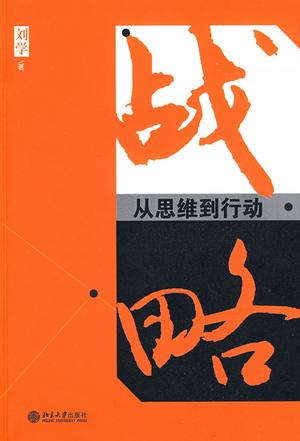
战略
《战略-从思维到行动》将战略定义为企业在特定的环境中所确定的核心目标与达成这些目标的关键路径的独特组合。许多战略的失败,不是战略本身的错误,而是没有连续的、一致的行动来支撑,是战略与行动的脱节。所以,《战略-从思维到行动》一方面避免单纯介绍国外学者的研究,另一方面避免远离中国现实世界的抽象,以发现在目标指导之下的连续的、一致的、集中的行动作为《战略-从思维到行动》的逻辑重点。 作者认为:战略的选择和实施是平衡的艺术。通过阅读《战略-从思维到行动》,读者除了能够掌握制订企业战略的基本过程、基本方法和分析工具以外,还能够在以下几个方面达成平衡: 第一,在理性分析和商业直觉之间达成平衡; 第二,在前瞻性和实用性之间达成平衡; 第三,实现基本知识与次级知识的平衡; 第四,在具体与抽象之间寻求平衡.因此,与国内同类图书相比,《战略-从思维到行动》重在训练读者的战略思维能力,使读者能够掌握行之有效的战略制定方法。 -
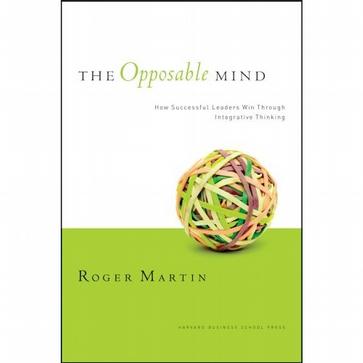
The Opposable Mind
If you want to be as successful as Jack Welch, Larry Bossidy, or Michael Dell, read their autobiographical advice books, right? Wrong, says Roger Martin in "The Opposable Mind." Though following "best practice" can help in some ways, it also poses a danger: By emulating what a great leader did in a particular situation, you'll likely be terribly disappointed with your own results. Why? Your situation is different. Instead of focusing on what exceptional leaders do, we need to understand and emulate how they think. Successful businesspeople engage in what Martin calls integrative thinking--creatively resolving the tension in opposing models by forming entirely new and superior ones. Drawing on stories of leaders as diverse as AG Lafley of Procter & Gamble, Meg Whitman of eBay, Victoria Hale of the Institute for One World Health, and Nandan Nilekani of Infosys, Martin shows how integrative thinkers are relentlessly diagnosing and synthesizing by asking probing questions--including "What are the causal relationships at work here?" and "What are the implied trade-offs?" Martin also presents a model for strengthening your integrative thinking skills by drawing on different kinds of knowledge--including conceptual and experiential knowledge. Integrative thinking can be learned, and "The Opposable Mind" helps you master this vital skill. -
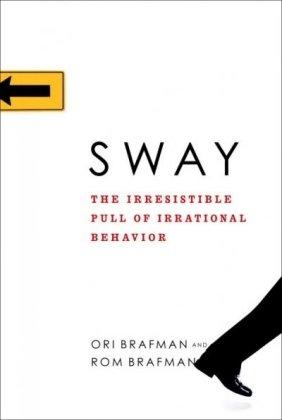
Sway
A fascinating journey into the hidden psychological influences that derail our decision-making, Sway will change the way you think about the way you think. Why is it so difficult to sell a plummeting stock or end a doomed relationship? Why do we listen to advice just because it came from someone “important”? Why are we more likely to fall in love when there’s danger involved? In Sway , renowned organizational thinker Ori Brafman and his brother, psychologist Rom Brafman, answer all these questions and more. Drawing on cutting-edge research from the fields of social psychology, behavioral economics, and organizational behavior, Sway reveals dynamic forces that influence every aspect of our personal and business lives, including loss aversion (our tendency to go to great lengths to avoid perceived losses), the diagnosis bias (our inability to reevaluate our initial diagnosis of a person or situation), and the “chameleon effect” (our tendency to take on characteristics that have been arbitrarily assigned to us). Sway introduces us to the Harvard Business School professor who got his students to pay $204 for a $20 bill, the head of airline safety whose disregard for his years of training led to the transformation of an entire industry, and the football coach who turned conventional strategy on its head to lead his team to victory. We also learn the curse of the NBA draft, discover why interviews are a terrible way to gauge future job performance, and go inside a session with the Supreme Court to see how the world’s most powerful justices avoid the dangers of group dynamics. Every once in a while, a book comes along that not only challenges our views of the world but changes the way we think. In Sway, Ori and Rom Brafman not only uncover rational explanations for a wide variety of irrational behaviors but also point readers toward ways to avoid succumbing to their pull. -
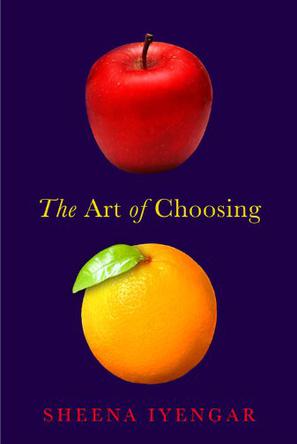
The Art of Choosing
Every day we make choices. Coke or Pepsi? Save or spend? Stay or go? Whether mundane or life-altering, these choices define us and shape our lives. Sheena Iyengar asks the difficult questions about how and why we choose: Is the desire for choice innate or bound by culture? Why do we sometimes choose against our best interests? How much control do we really have over what we choose? Sheena Iyengar's award-winning research reveals that the answers are surprising and profound. In our world of shifting political and cultural forces, technological revolution, and interconnected commerce, our decisions have far-reaching consequences. Use THE ART OF CHOOSING as your companion and guide for the many challenges ahead. -
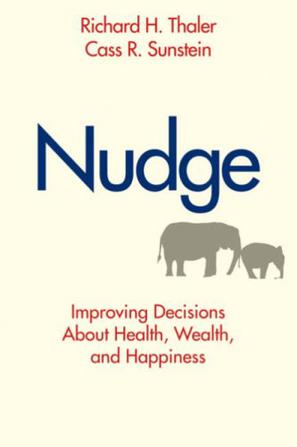
Nudge
Every day, we make decisions on topics ranging from personal investments to schools for our children to the meals we eat to the causes we champion. Unfortunately, we often choose poorly. The reason, the authors explain, is that, being human, we all are susceptible to various biases that can lead us to blunder. Our mistakes make us poorer and less healthy; we often make bad decisions involving education, personal finance, health care, mortgages and credit cards, the family, and even the planet itself. Thaler and Sunstein invite us to enter an alternative world, one that takes our humanness as a given. They show that by knowing how people think, we can design choice environments that make it easier for people to choose what is best for themselves, their families, and their society. Using colorful examples from the most important aspects of life, Thaler and Sunstein demonstrate how thoughtful choice architecture” can be established to nudge us in beneficial directions without restricting freedom of choice. Nudge offers a unique new takefrom neither the left nor the righton many hot-button issues, for individuals and governments alike. This is one of the most engaging and provocative books to come along in many years. (20080518)